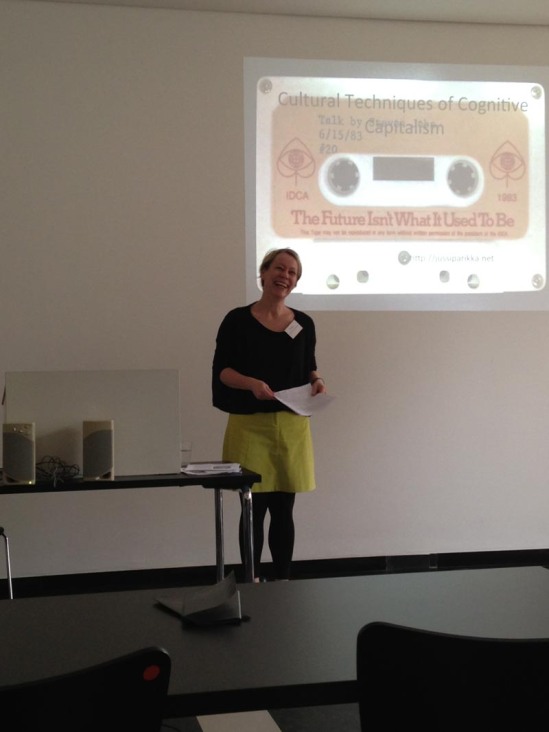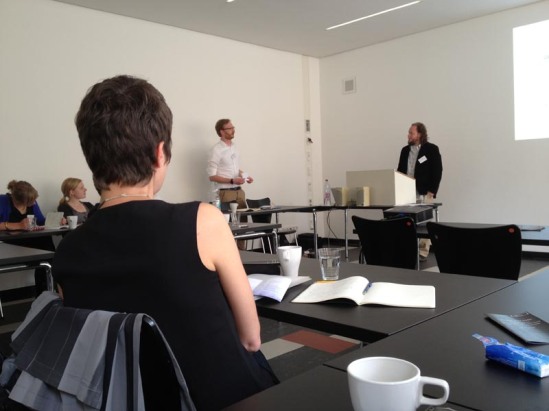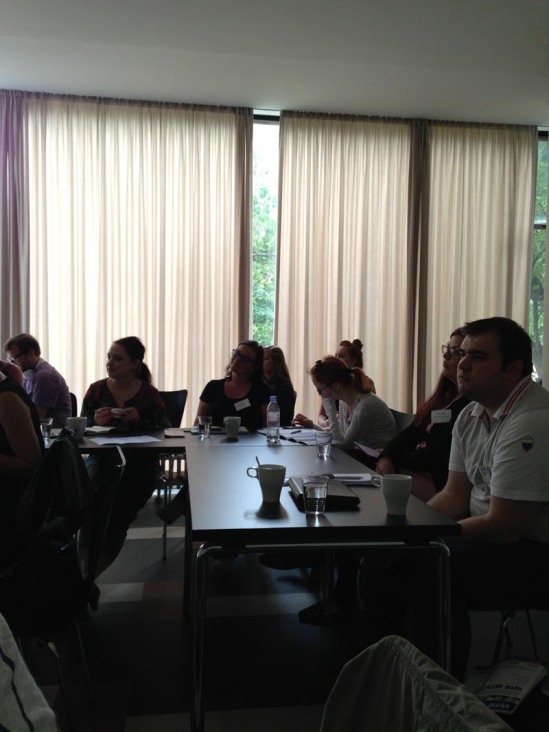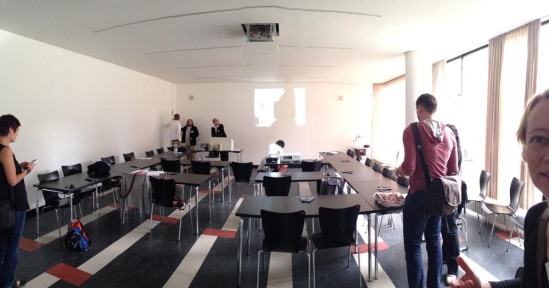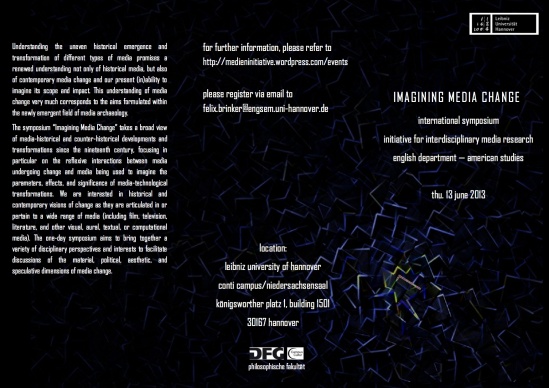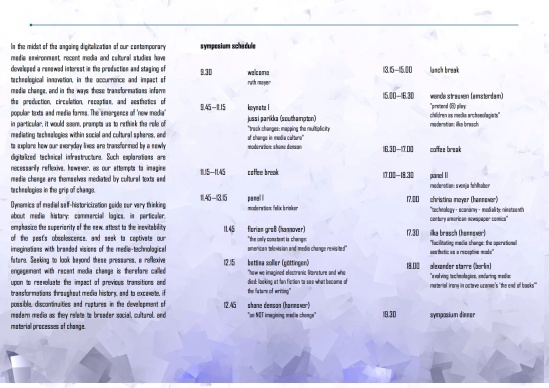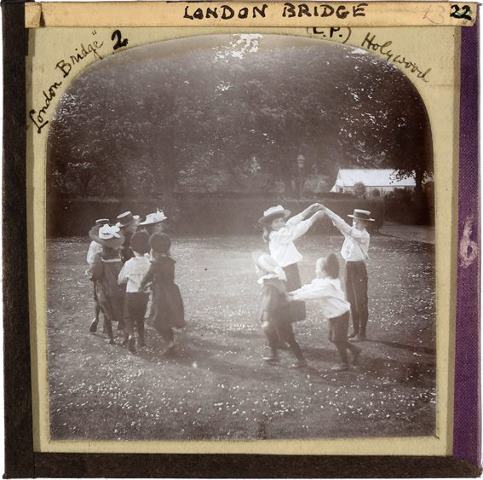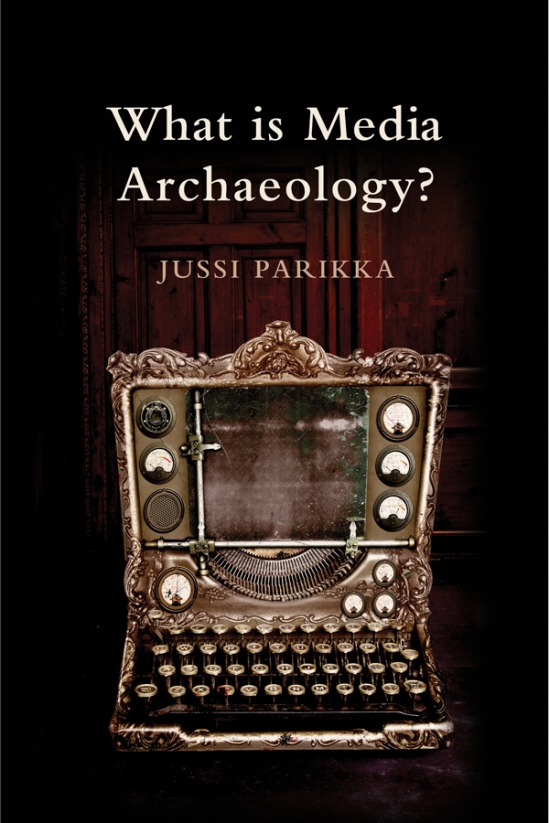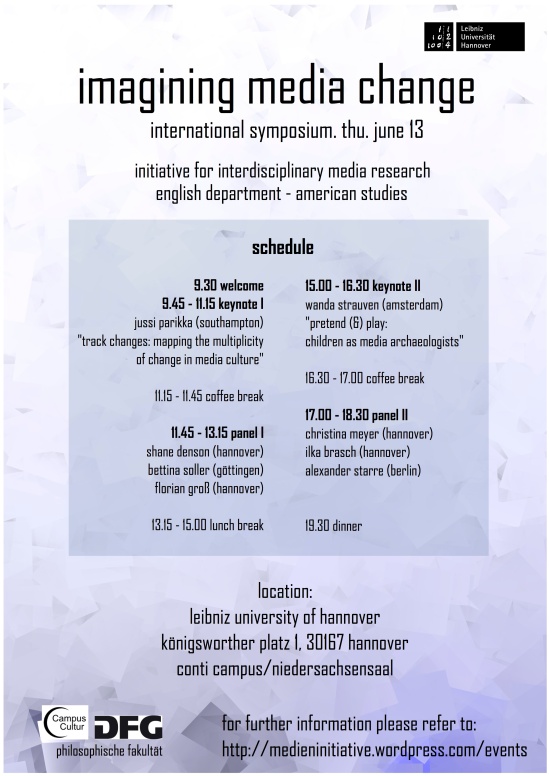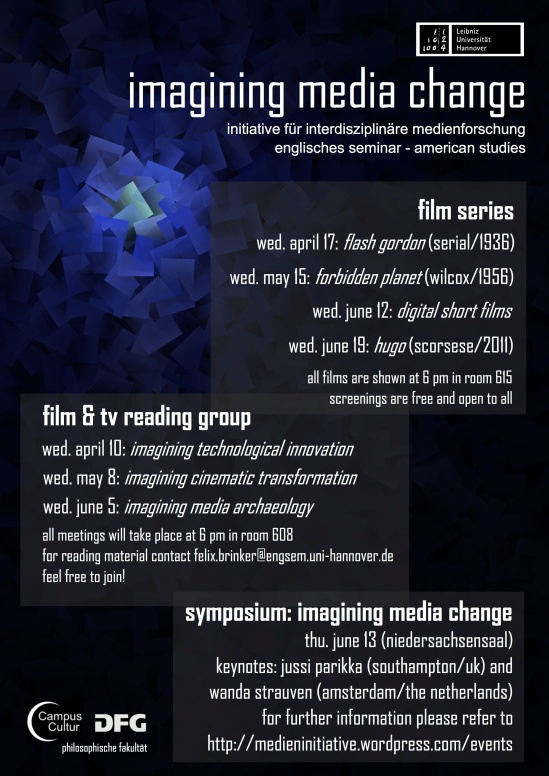
[UPDATE: See here for the complete symposium program and abstracts.]
Imagining Media Change
Symposium of the Initiative for Interdisciplinary Media Research and the American Studies department at the Leibniz University of Hannover, 13 June 2013 (Niedersachsensaal, Conti-Campus)
In the midst of the ongoing digitalization of our contemporary media environment, recent media and cultural studies have developed a renewed interest in the production and staging of technological innovation, in the occurrence and impact of media change, and in the ways these transformations inform the production, circulation, reception, and aesthetics of popular texts and media forms. The emergence of ‘new media’ in particular, it would seem, prompts us to rethink the role of mediating technologies within social and cultural spheres, and to explore how our everyday lives are transformed by a newly digitalized technical infrastructure. Such explorations are necessarily reflexive, however, as our attempts to imagine media change are themselves mediated by cultural texts and technologies in the grip of change. Dynamics of medial self-historicization guide our very thinking about media history: commercial logics, in particular, emphasize the superiority of the new, attest to the inevitability of the past’s obsolescence, and seek to captivate our imaginations with branded visions of the media-technological future. Seeking to look beyond these pressures, a reflexive engagement with recent media change is therefore called upon to reevaluate the impact of previous transitions and transformations throughout media history, and to excavate, if possible, discontinuities and ruptures in the development of modern media as they relate to broader social, cultural, and material processes of change. From a media-archaeological perspective, the history of media emerges not as a straightforward, linear process of technological innovation and implementation, but rather as a discontinuous series of media crises and negotiations of change. Understanding the uneven historical emergence and transformation of different types of media thus promises a renewed understanding not only of historical media, but also of contemporary media change and our present (in)ability to imagine its scope and impact. Crucial to this enterprise is an appreciation of reflexivity itself – a recognition of the fact that when media change, they also change our imaginations, including our imagination of media change. In the face of corporate and other interests that seek to capitalize on this logic and to steer our imaginations of the digital transition for their own benefit, what’s ultimately at stake in a media-archaeological excavation of our medial past and present is therefore nothing less than a political question: Will we be the subjects or merely the objects of “imagining media change”?
The symposium “Imagining Media Change” takes a broad view of media-historical and counter-historical developments and transformations since the nineteenth century, focusing in particular on the reflexive interactions between media undergoing change and media being used to imagine the parameters, effects, and significance of media-technological transformations. We are interested in historical and contemporary visions of change as they are articulated in or pertain to a wide range of media (including film, television, literature, and other visual, aural, textual, or computational media). The one-day symposium aims to bring together a variety of disciplinary perspectives and interests and to facilitate discussion of the material, political, aesthetic, and speculative dimensions of media change. Keynote lectures will be held by Jussi Parikka (University of Southampton, UK) and Wanda Strauven (University of Amsterdam, NL).
For more information about the symposium “Imagining Media Change,” please contact felix.brinker@engsem.uni-hannover.de or refer to the events page (http://medieninitiative.wordpress.com/events/).
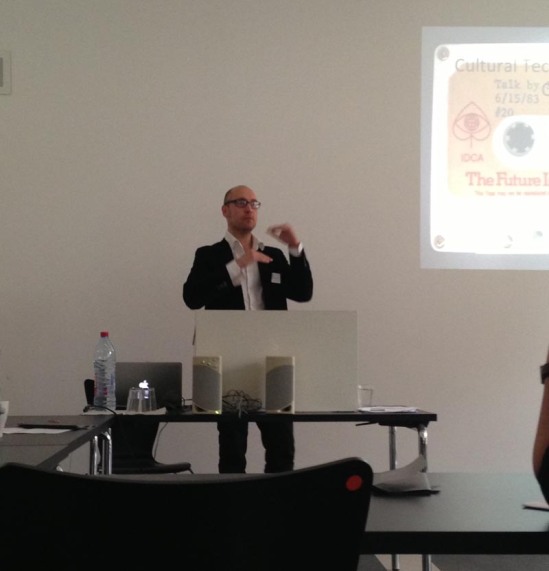 Jussi Parikka talking about “Cultural Techniques of Cognitive Capitalism: On Change and Recurrence” in his wonderful opening keynote.
Jussi Parikka talking about “Cultural Techniques of Cognitive Capitalism: On Change and Recurrence” in his wonderful opening keynote.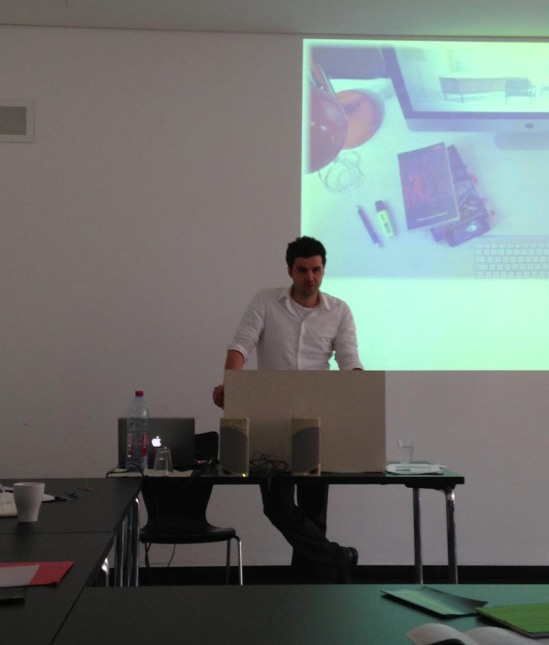 Florian Groß delivering his talk “The Only Constant is Change: American Television and Media Change Revisited” — with examples from Mad Men.
Florian Groß delivering his talk “The Only Constant is Change: American Television and Media Change Revisited” — with examples from Mad Men.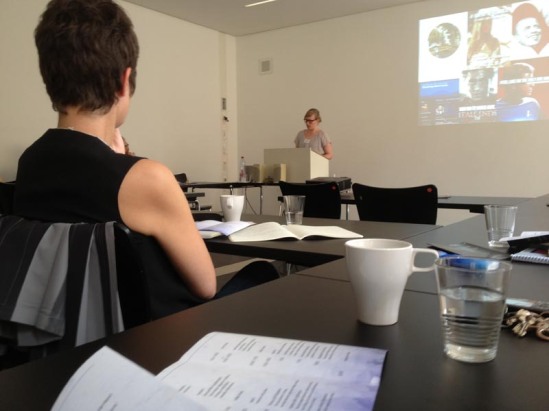 Bettina Soller on hypertext and fanfic in her talk “How We Imagined Electronic Literature and Who Died: Looking at Fan Fiction to See What Became of the Future of Writing”.
Bettina Soller on hypertext and fanfic in her talk “How We Imagined Electronic Literature and Who Died: Looking at Fan Fiction to See What Became of the Future of Writing”.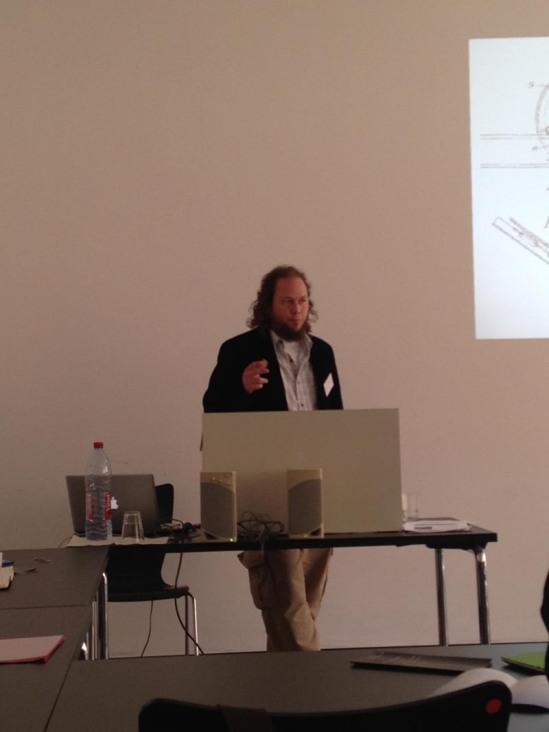 Me, Shane Denson, on escalators and “On NOT Imagining Media Change”.
Me, Shane Denson, on escalators and “On NOT Imagining Media Change”.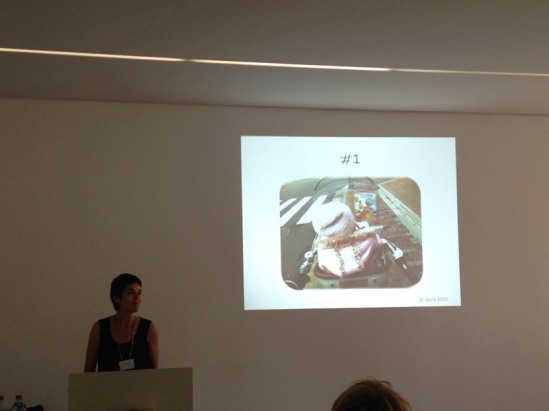 Wanda Strauven delivering the second keynote, “Pretend (&) Play: Children as Media Archaeologists” — a lively talk with great examples!
Wanda Strauven delivering the second keynote, “Pretend (&) Play: Children as Media Archaeologists” — a lively talk with great examples!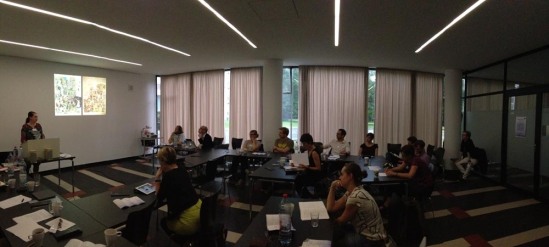 Christina Meyer talking about the Yellow Kid and “Technology – Economy – Mediality: Nineteenth Century American Newspaper Comics”.
Christina Meyer talking about the Yellow Kid and “Technology – Economy – Mediality: Nineteenth Century American Newspaper Comics”.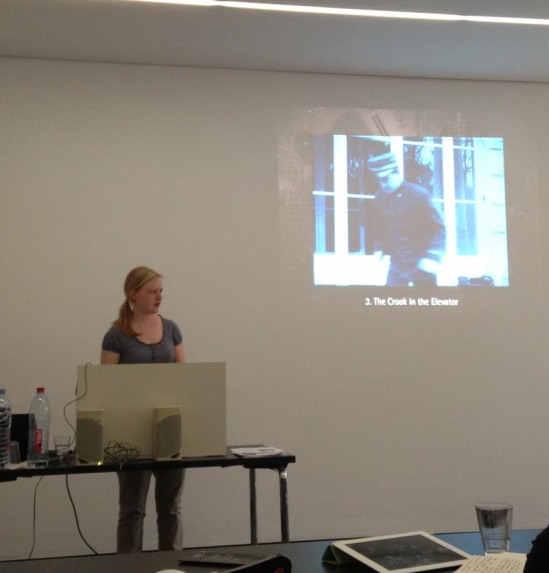 Ilka Brasch talking about early film serials and “Facilitating Media Change: The Operational Aesthetic as a Receptive Mode”.
Ilka Brasch talking about early film serials and “Facilitating Media Change: The Operational Aesthetic as a Receptive Mode”.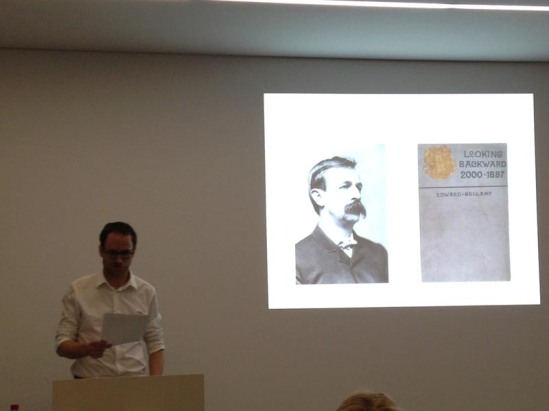 Alexander Starre wrapping up the symposium with an excellent talk on “Evolving Technologies, Enduring Media: Material Irony in Octave Uzanne’s ‘The End of Books’”.
Alexander Starre wrapping up the symposium with an excellent talk on “Evolving Technologies, Enduring Media: Material Irony in Octave Uzanne’s ‘The End of Books’”.